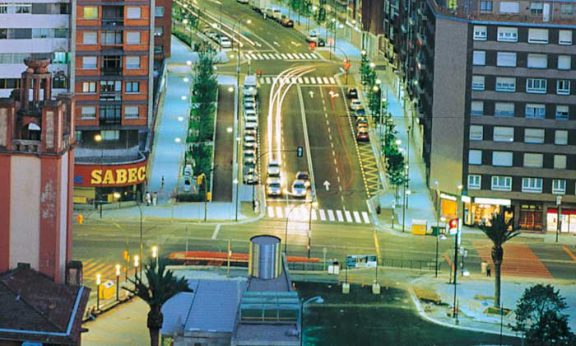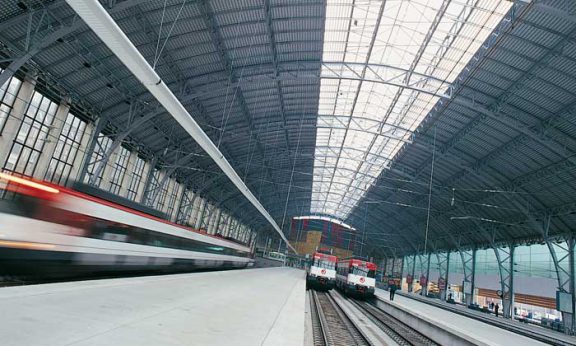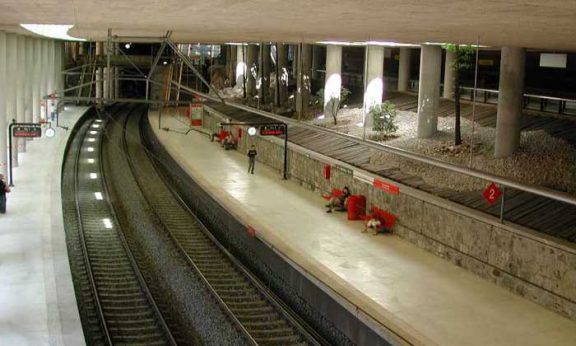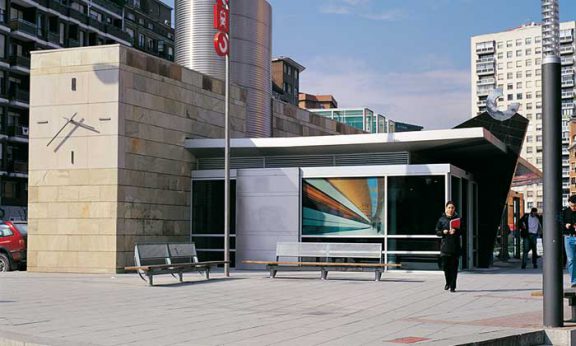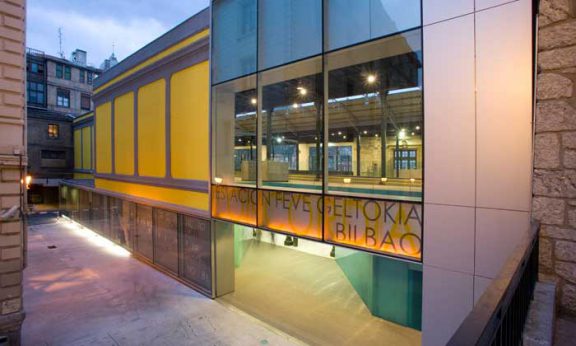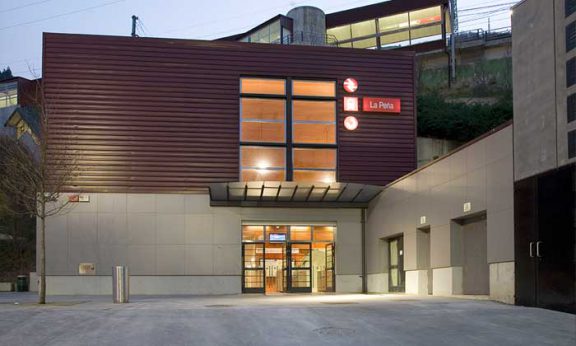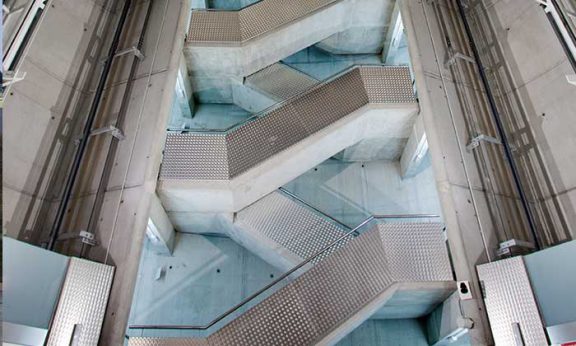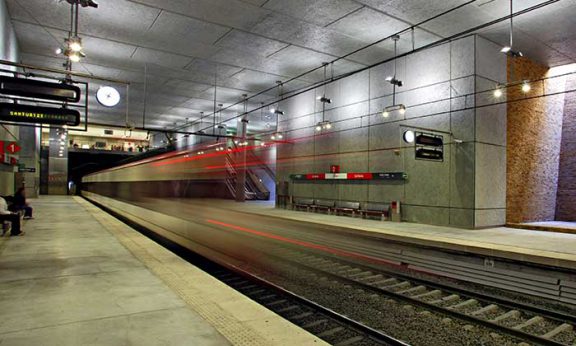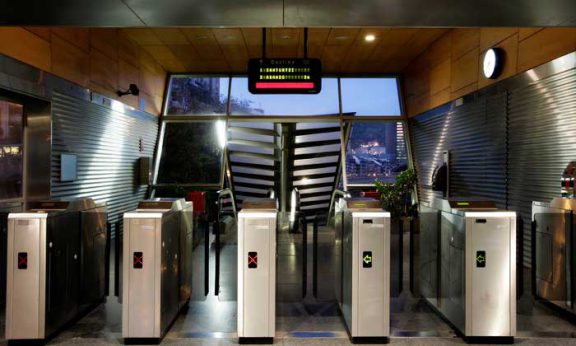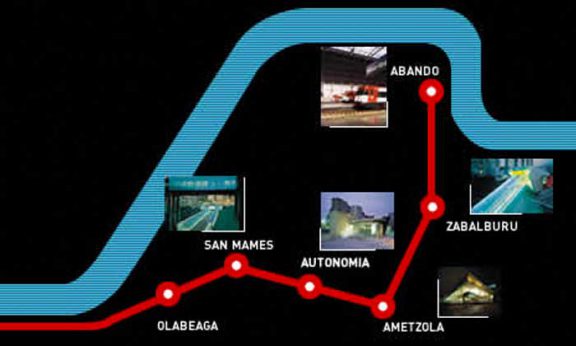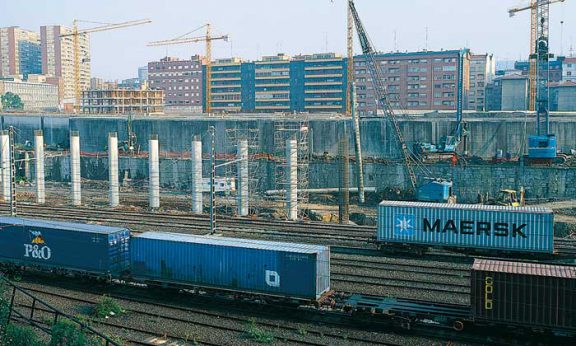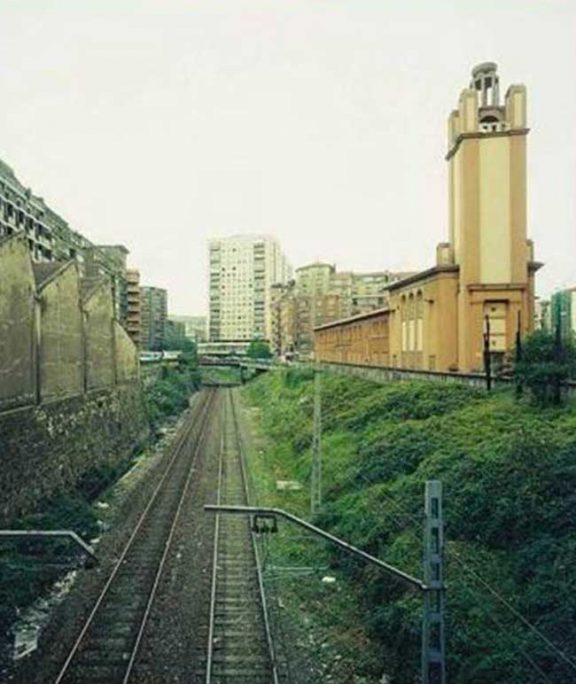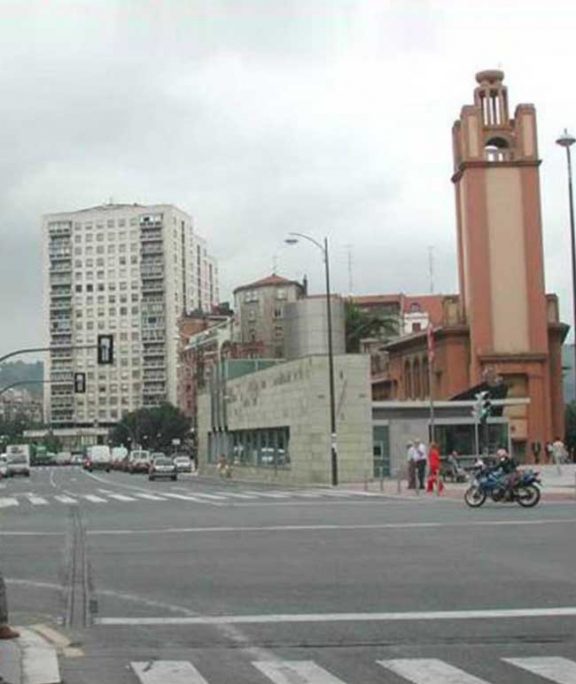Actions
Rail Infraestructures
The construction of the new Bilbao required the elimination of the barrier posed by the railway line along the estuary and this was the first major work undertaken by BILBAO Ría 2000 after its foundation.
The removal of the tracks, together with the disappearance of the Euskalduna shipyard and the transfer of the pre-existing railway and port infrastructures, allowed the city to get closer to the Estuary, with some spaces gained for citizens that were key in the birth of the new Bilbao.
Parallel to this, the construction of the Southern Railway Bypass between San Mamés and Abando, taking advantage of a freight route, improved railway operations and led to the construction of new stations in areas of Bilbao that were not reached by the railway, offering public transport improvements to citizens.
In addition, the covering of the tracks led to the construction of a boulevard on Avenida del Ferrocarril and the consequent closing of a century-old urban gap in the heart of the town for the sake of a more balanced and friendly urban design.
As part of this intervention, the Zabalburu, Ametzola (with service to two passenger lines) and Autonomia stations and the San Mamés hub were built and the Abando station was remodelled.
BILBAO Ría 2000 has carried out other railway works, such as the construction of the La Peña and Miribilla stations (previously non-existent) and a new station in Santurtzi, replacing the previous one.
We can also highlight the two phases of the underground routing of the Adif Metric Width line as it passes through Basurto, Rekalde and Irala, which are the cornerstone of the Basurto-San Mamés action.
In total, BILBAO Ría 2000 has proceeded to the urban integration of 4 kilometres of railway line that previously served as a barrier between different neighbourhoods in the city.
DATA SHEET
- Start of the action: 1995
- End of Feve’s route modification in Ametzola: 1996
- End of coverage of Gordóniz-Luis Briñas section: 1998
- Inauguration of the Renfe-Cercanías South line: 1999
- Inauguration of the Avenida del Ferrocarril boulevard: 2002
- Investment: €149 M


